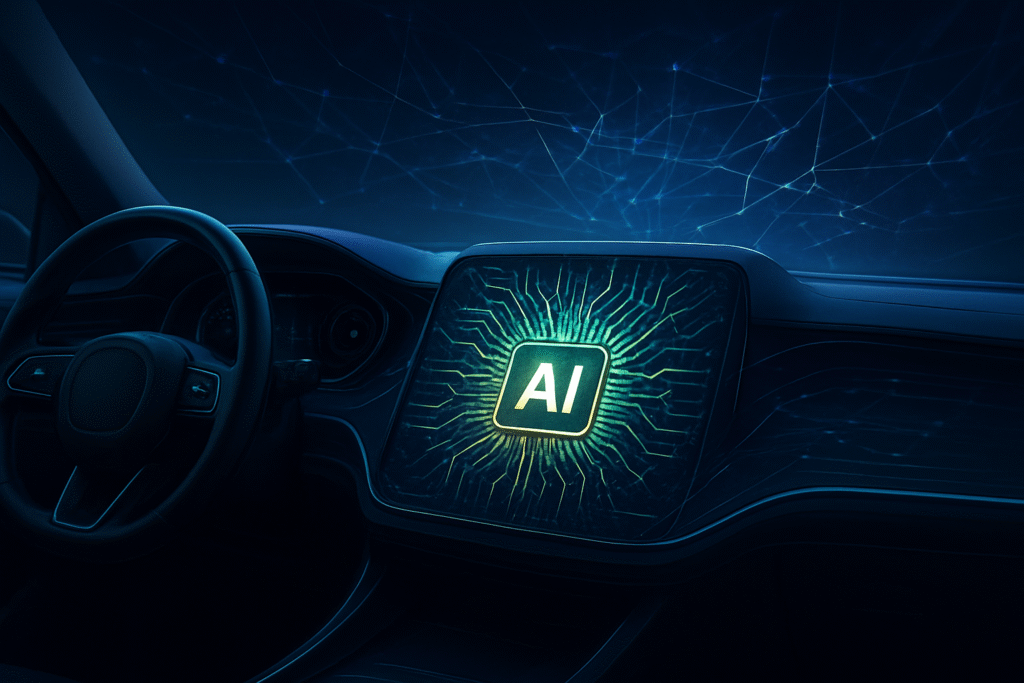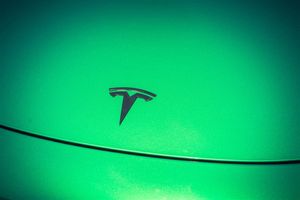
The global automotive industry finds itself at a critical juncture, navigating the treacherous waters of persistent semiconductor shortages while simultaneously engaging in an escalating "battle for AI chips." As of October 2025, a fresh wave of chip supply disruptions, primarily fueled by geopolitical tensions, is once again forcing major manufacturers like Volkswagen (XTRA: VOW), Volvo Cars (STO: VOLV B), and Honda (NYSE: HMC) to halt or scale back vehicle production, leading to significant financial losses and uncertainty across the sector. This immediate crisis is unfolding against a backdrop of unprecedented demand for artificial intelligence (AI) capabilities in vehicles, transforming cars into sophisticated, software-defined machines.
The immediate significance of this dual challenge cannot be overstated. Automakers are not only struggling to secure basic microcontrollers essential for fundamental vehicle operations but are also locked in a fierce competition for advanced AI processors. These high-performance chips are crucial for powering the next generation of Advanced Driver-Assistance Systems (ADAS), autonomous driving features, and personalized in-car experiences. The ability to integrate cutting-edge AI is rapidly becoming a key differentiator in a market where consumers increasingly prioritize digital features, making access to these specialized components a matter of competitive survival and innovation.
The Silicon Brains of Tomorrow's Cars: A Deep Dive into Automotive AI Chips
The integration of AI into vehicles marks a profound technical shift, moving beyond traditional electronic control units (ECUs) to sophisticated neural processing units (NPUs) and modular system-on-chip (SoC) architectures. These advanced chips are the computational backbone for a myriad of AI-driven functions, from enhancing safety to enabling full autonomy.
Specifically, AI advancements in vehicles are concentrated in several key areas. Advanced Driver-Assistance Systems (ADAS) such as automatic emergency braking, lane-keeping assistance, and adaptive cruise control rely heavily on AI to process data from an array of sensors—cameras, radar, lidar, and ultrasonic—in real-time. McKinsey & Company projects an 80% growth in Level 2 autonomy by 2025, with AI-driven ADAS potentially reducing accidents by 40%. Beyond safety, AI optimizes engine performance, manages energy consumption, and improves fuel efficiency, particularly in electric vehicles (EVs), by optimizing battery life and charging processes. Personalized driving experiences are also becoming standard, with AI learning driver habits to automatically adjust seat positions, climate settings, and infotainment preferences. Connected car technologies, enabled by AI, are fostering new revenue streams through features like predictive maintenance and over-the-air (OTA) updates, effectively turning vehicles into "smartphones on wheels."
The technical specifications for these AI chips are demanding. They require immense computational power for real-time inference at the edge (in the vehicle), low latency, high reliability, and energy efficiency. Unlike previous generations of automotive chips, which were often purpose-built for specific, isolated functions, modern AI chips are designed for complex, parallel processing, often incorporating specialized accelerators for machine learning tasks. This differs significantly from earlier approaches that relied on simpler microcontrollers and less sophisticated algorithms. The current trend favors highly integrated SoCs that combine CPU, GPU, and NPU cores, often fabricated on advanced process nodes (e.g., 3nm, 4nm) to maximize performance and minimize power consumption. Initial reactions from the AI research community and industry experts highlight the increasing convergence of automotive and high-performance computing (HPC) chip design, with a strong emphasis on software-defined architectures that allow for continuous updates and feature enhancements.
Reshaping the Landscape: How the AI Chip Battle Impacts Tech Giants and Startups
The intensifying battle for AI chips is profoundly reshaping the competitive landscape for AI companies, tech giants, and innovative startups within the automotive sector. Access to and mastery of these critical components are dictating market positioning and strategic advantages.
Leading semiconductor companies like Nvidia (NASDAQ: NVDA), TSMC (NYSE: TSM), AMD (NASDAQ: AMD), Intel (NASDAQ: INTC), and Qualcomm (NASDAQ: QCOM) stand to benefit immensely from this development. Nvidia, in particular, has cemented its dominance, achieving a staggering $5 trillion market capitalization as of October 29, 2025, and holding an estimated 75% to 90% market share in the AI chip market. Its powerful GPUs and comprehensive software stacks are becoming indispensable for autonomous driving platforms. TSMC, as the world's largest contract chipmaker, reported record profits in Q3 2025, with AI and high-performance computing driving over half of its sales, underscoring its critical role in fabricating these advanced processors. Memory manufacturers like SK Hynix (KRX: 000660) are also seeing massive surges, with its entire 2026 high-bandwidth memory (HBM) chip lineup for AI already sold out.
Conversely, traditional automakers face a stark choice: invest heavily in in-house chip design and software development or forge deep partnerships with tech giants. Companies like Tesla (NASDAQ: TSLA) are pursuing vertical integration, designing their own AI chips like the newly developed AI5 and securing manufacturing deals, such as the $16.5 billion agreement with Samsung (KRX: 005930) for its next-generation AI6 chips. This strategy grants them full-stack control and localized supply, potentially disrupting competitors reliant on external suppliers. Many European OEMs, including Stellantis (NYSE: STLA), Mercedes-Benz (XTRA: MBG), and Volkswagen, are opting for collaborative, platform-centric approaches, pooling engineering resources and aligning software roadmaps to accelerate the development of software-defined vehicles (SDVs). The competitive implications are clear: those who can secure a robust supply of advanced AI chips and integrate them effectively will gain a significant market advantage, potentially leaving behind companies that struggle with supply chain resilience or lack the expertise for advanced AI integration. This dynamic is also creating opportunities for specialized AI software startups that can provide optimized algorithms and platforms for these new hardware architectures.
A New Era of Automotive Intelligence: Broader Significance and Societal Impact
The automotive industry's pivot towards AI-powered vehicles, underscored by the intense competition for AI chips, represents a significant milestone in the broader AI landscape. It signifies a major expansion of AI from data centers and consumer electronics into mission-critical, real-world applications that directly impact safety and daily life.
This trend fits into the broader AI landscape as a crucial driver of edge AI—the deployment of AI models directly on devices rather than solely in the cloud. The demand for in-vehicle (edge) AI inference is pushing the boundaries of chip design, requiring greater computational efficiency and robustness in constrained environments. The impacts are wide-ranging: enhanced road safety through more sophisticated ADAS, reduced carbon emissions through optimized EV performance, and entirely new mobility services based on autonomous capabilities. However, this shift also brings potential concerns. Supply chain resilience, highlighted by the current Nexperia crisis, remains a major vulnerability. Ethical considerations surrounding autonomous decision-making, data privacy from connected vehicles, and the potential for job displacement in traditional driving roles are also critical societal discussions. This era can be compared to previous technological shifts, such as the advent of the internet or smartphones, where a foundational technology (AI chips) unlocks a cascade of innovations and fundamentally redefines an entire industry.
The Road Ahead: Future Developments and Emerging Challenges
The future of automotive AI and the chip supply chain is poised for rapid evolution, with several key developments and challenges on the horizon. Near-term, the industry will focus on diversifying semiconductor supply chains to mitigate geopolitical risks and prevent future production halts. Automakers are actively seeking alternative suppliers and investing in localized manufacturing capabilities where possible.
Long-term, we can expect continued advancements in AI chip architecture, with a greater emphasis on energy-efficient NPUs and neuromorphic computing for even more sophisticated in-vehicle AI. The push towards Level 4 and Level 5 autonomous driving will necessitate exponentially more powerful and reliable AI chips, capable of processing vast amounts of sensor data in real-time under all conditions. Potential applications include widespread robotaxi services, highly personalized in-car experiences that adapt seamlessly to individual preferences, and vehicle-to-everything (V2X) communication systems that leverage AI for enhanced traffic management and safety. Challenges that need to be addressed include the standardization of AI software and hardware interfaces across the industry, the development of robust regulatory frameworks for autonomous vehicles, and ensuring the security and privacy of vehicle data. Experts predict a continued consolidation in the automotive AI chip market, with a few dominant players emerging, while also forecasting significant investment in AI research and development by both car manufacturers and tech giants to maintain a competitive edge. Nvidia, for instance, is developing next-generation AI chips like Blackwell Ultra (to be released later in 2025) and Vera Rubin Architecture (for late 2026), indicating a relentless pace of innovation.
Navigating the New Frontier: A Comprehensive Wrap-up
The automotive industry's current predicament—grappling with immediate chip shortages while simultaneously racing to integrate advanced AI—underscores a pivotal moment in its history. Key takeaways include the critical vulnerability of global supply chains, the imperative for automakers to secure reliable access to advanced semiconductors, and the transformative power of AI in redefining vehicle capabilities.
This development signifies AI's maturation from a niche technology to a fundamental pillar of modern transportation. Its significance in AI history lies in demonstrating AI's ability to move from theoretical models to tangible, safety-critical applications at scale. The long-term impact will see vehicles evolve from mere modes of transport into intelligent, connected platforms that offer unprecedented levels of safety, efficiency, and personalized experiences. What to watch for in the coming weeks and months includes how quickly automakers can resolve the current Nexperia-induced chip shortage, further announcements regarding partnerships between car manufacturers and AI chip developers, and the progress of new AI chip architectures designed specifically for automotive applications. The race to equip cars with the most powerful and efficient AI brains is not just about technological advancement; it's about shaping the future of mobility itself.
This content is intended for informational purposes only and represents analysis of current AI developments.
TokenRing AI delivers enterprise-grade solutions for multi-agent AI workflow orchestration, AI-powered development tools, and seamless remote collaboration platforms.
For more information, visit https://www.tokenring.ai/.





